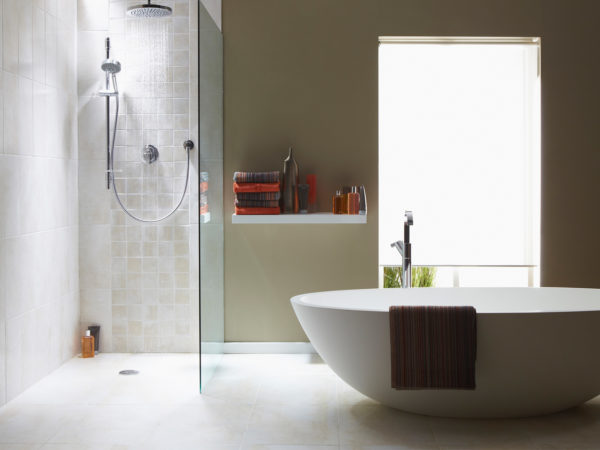What’s Best: A Bath Or A Shower?
Is there any science answering the question of whether taking baths or showering is better for health? Everything I’ve seen online is very opinion-based and inconsistent.
Andrew Weil, M.D. | November 18, 2016

People tend to hold firm opinions as to whether a bath or shower is better, but these views seem to be based on personal preference rather than any scientific findings. (I haven’t seen any actual studies on this issue.) In general, those who prefer showers argue that they get you cleaner than bathing in a tub, where you can end up sitting in dirty, soapy water. That view doesn’t seem to impress those who take baths and maintain that they get you cleaner than showering would. I’ve seen the argument that you’re safer washing your feet in the tub than standing in the shower where soaping them could cause you to slip and fall. Of course, getting in and out of a tub can also be hazardous.
I can see that washing your hair in the tub, as some people do, could pose a problem since you may not be able to rinse out all the shampoo unless you stand under the shower when you’re done. Otherwise, you probably get as clean in a bath as a shower since most people who wash daily don’t get very dirty. Note that the Japanese only get into the hot baths they love after cleaning themselves thoroughly with a washcloth, soap, and hand-held showerhead.
However, long baths are probably not advisable if you’ve got sensitive skin that tends toward dryness or irritation. Water is drying whether you sit in the tub or shower, so however you bathe it is important to moisturize your skin afterward. Another potential risk: some women who take hot baths may be more prone to vaginal yeast infections.
The other principal bath v. shower argument concerns water usage. According to the U.S. Environmental Protection Agency (EPA), a typical shower uses 20 gallons of water compared to 70 gallons for a bath. The EPA has been encouraging children to shower rather than take baths as a way of conserving water, an increasingly limited resource. The EPA also advises saving water by keeping your shower to less than five minutes.
To further cut down on water use, the agency encourages switching from standard showerheads that use 2.5 gallons of water per minute to low-flow or water-saving ones with the WaterSense label. These are designed to use no more than two gallons of water per minute and give you as satisfactory a shower as you would get from a standard showerhead.
By making this switch, the EPA estimates that the average family could save 2,900 gallons of water per year. This conservation will also save energy and cut your electricity bill by reducing demands on your water heater. According to EPA calculations, the average family could save more than 370 kilowatt hours of electricity annually, enough to power a house for 13 days.
Andrew Weil, M.D.
Source:
Water Conservation at EPA, U.S. Environmental Protection Agency, https://www.epa.gov/greeningepa/water-conservation-epa, accessed August 22, 2016









